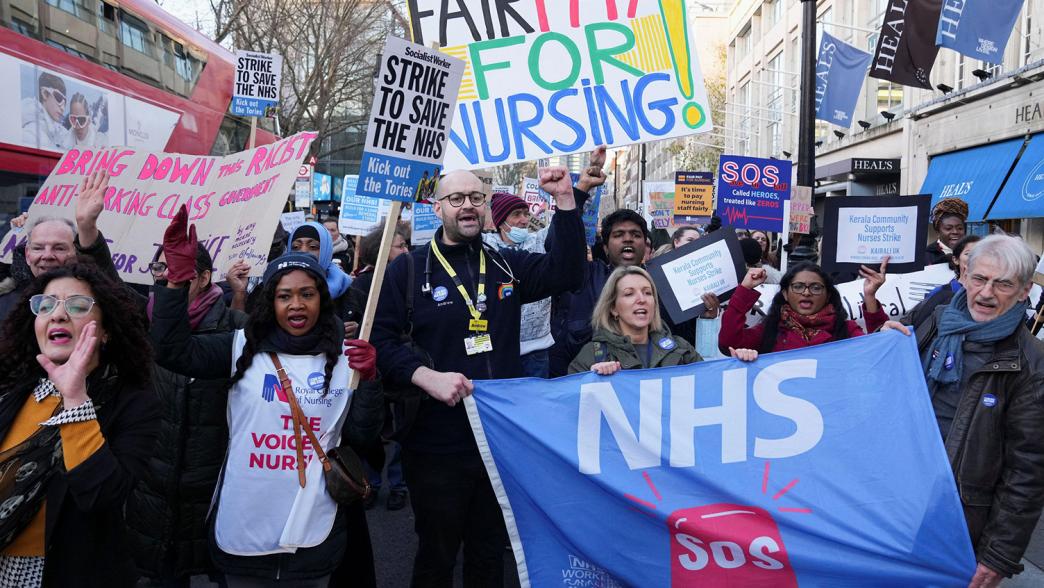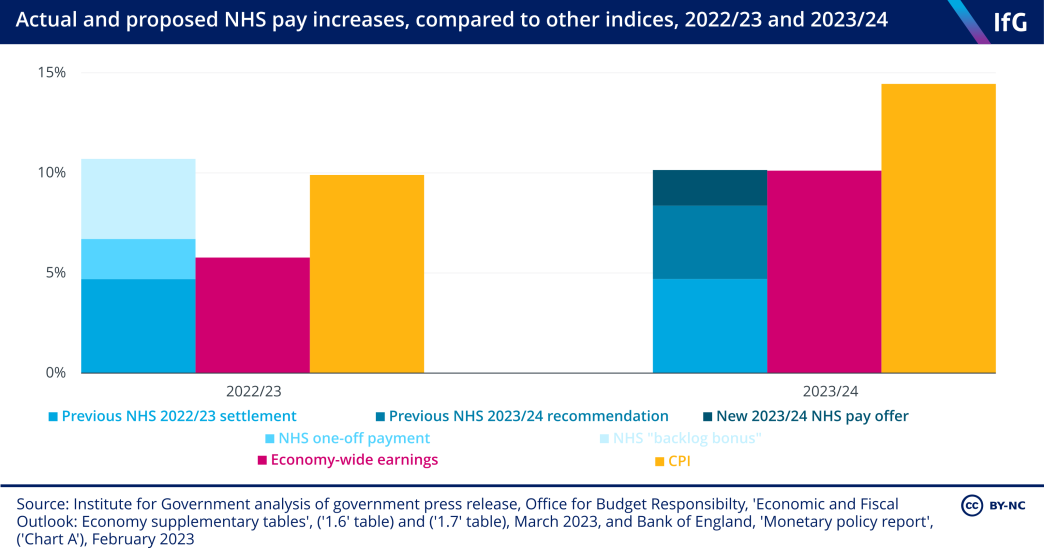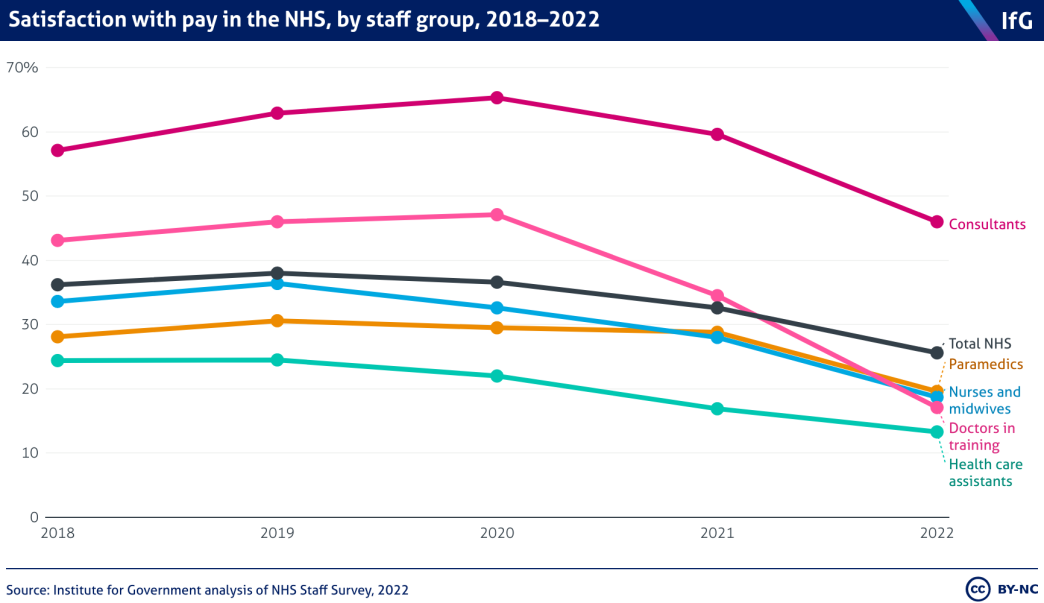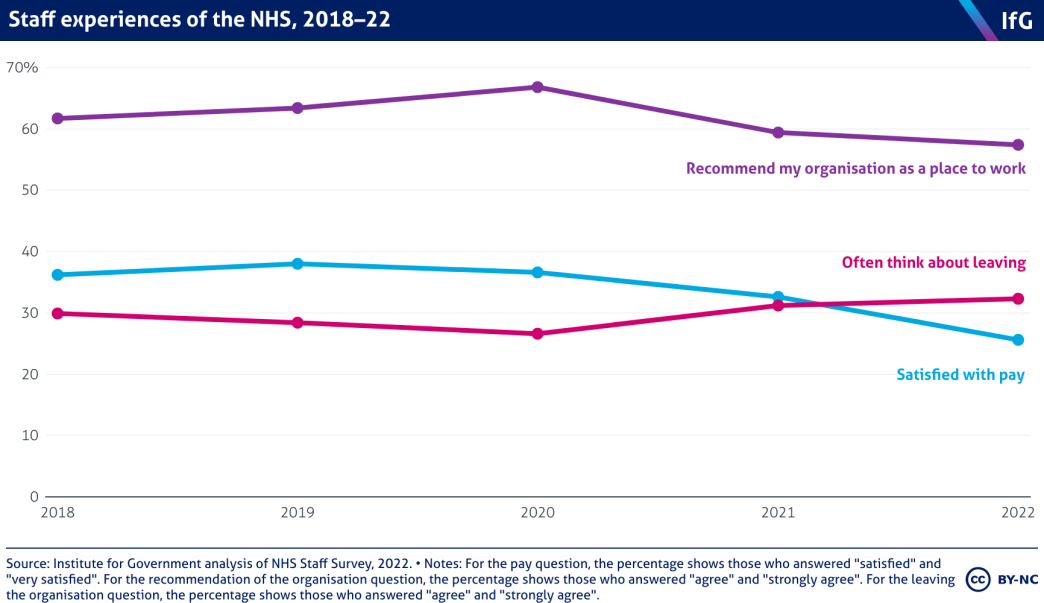A welcome NHS pay deal has taken too long to reach
The government may claim that its hardline approach paid off, but the six months of damage it has caused is surely not a price worth paying.

Settling the NHS pay dispute is good news for patients, but Stuart Hoddinott says the government’s hardline strike strategy has caused considerable damage to staff morale and retention.
The government has reached an agreement on NHS pay
17
Department of Health and Social Care, The Rt Hon Rishi Sunak MP, and The Rt Hon Steve Barclay MP, Government and health unions agree pay deal paving way for an end to strike action, 16 March 2023, www.gov.uk/government/news/government-and-health-unions-agree-pay-deal-paving-way-for-an-end-to-strike-action
after more than six months of on and off negotiating with a number of unions. Re-opening the 2022/23 pay deal (a step the government had previously been unwilling to take
18
BBC News, Retrospective pay talks are 'not right' - Barclay, 6 February 2023, www.bbc.co.uk/news/av/uk-politics-64542310
) looks to have been key to achieving a breakthrough on NHS pay, but even settling this dispute – still an open question given that Unite recommends that its members reject the deal – would not resolve questions about the government’s strike strategy.
A new NHS pay deal is good news for patients
The offer for nurses and ambulance workers involves a “non-consolidated” bonus this year worth 2% of 2021/22 salaries and an NHS “backlog bonus” estimated to be worth an additional 4%. 19 Brown F, NHS unions reach pay deal after government offers 5% rise, Sky News, 16 March 2023, https://news.sky.com/story/nhs-strike-action-to-be-paused-after-union-recommends-members-accept-improved-pay-offer-12835466 The government also offered a 5% consolidated pay increase in 2023/24 – along with a boost to some lower-paid staff – which brings the total wage bill uplift to 5.2%, 1.7 percentage points more than the 3.5% recommendation the government made to the pay review body last month. This package will cost the government approximately £2.5bn extra in 2022/23. 20 Stewart H and Bawden A, Health unions hail victory after government’s new pay offer for NHS staff in England, The Guardian, 16 March 2023, www.theguardian.com/society/2023/mar/16/government-confirms-new-pay-offer-for-nhs-staff-in-england

As the above chart shows, NHS pay in 2022/23 will outstrip inflation and pay in other sectors thanks to the inclusion of the two new one-off payments (as long as members accept this offer). However, their salary in 2023/24 – which will exclude the non-consolidated one-off payments from 2022/23 – will be roughly equal to wider economy wages, and likely behind private sector wages and inflation, with implications for the competitiveness of NHS pay beyond 2023/24. But in the immediate term, a settlement is good news for patients.
Retaining a skilled workforce is critical to NHS performance and historically high dissatisfaction with pay – among other things – contributed to a record 148,000 staff resigning from the service in the 12 months to September 2022. The government should set public sector pay at a level that allows it to achieve its targets for staff recruitment and retention. This new offer should help to improve both.

An NHS pay deal does not end wider industrial action
The next question is how the service will afford this settlement. The government could either make more money available to the NHS or insist that the service funds the increase from existing budgets, meaning a reduction in spending on other areas. Health secretary Steve Barclay has said that “[this pay deal] will not come from patient-facing aspects […] we will look at areas of underspend, areas of administrative saving" 23 BBC News, Barclay on NHS pay offer: We listened to union concerns, 16 March, www.bbc.co.uk/news/av/uk-politics-64980734 , but relying on the NHS finding further efficiencies, particularly from management and administrative staff, would be counterproductive. The NHS is already struggling to recover from the pandemic, with a lack of management resource a key constraint. Enforcing further cuts on this vital part of the workforce would jeopardise the prime minister’s pledge to cut waiting times. 24 Prime Minister's Office, 10 Downing Street and The Rt Hon Rishi Sunak MP, Prime Minister outlines his five key priorities for 2023, 4 January 2023, www.gov.uk/government/news/prime-minister-outlines-his-five-key-priorities-for-2023
Alternatively, the government could provide the NHS with additional funding. The government could achieve this through either higher taxes, or increased borrowing. Another option could be to use some of the £13bn worth of reserves that the chancellor announced in this week’s budget.
But £13bn of reserves can only stretch so far. This agreement only covers nurses and ambulance workers. Junior doctors have just concluded a 72-hour walk out, causing considerable disruption in the health service, while teachers, rail workers, Tube workers, and civil servants are all undertaking their own industrial action. Unions in those sectors will now be looking to this agreement as a potential blueprint for what could be achieved, and the government has now set a benchmark for what it is willing to offer. But replicating this deal could be costly for the government. We estimate that a similar pay deal with teachers could cost the government as much as £2.4bn in one-off payments and a further £0.7bn in increased pay in the 2023-24 academic year, raising the question over where the money will come from.
And as with the NHS there is little fat to trim in other services’ budgets without risking further declines in performance. The government may refuse to make new money available to services now, but experience shows that the government will be forced to top up budgets when performance becomes politically untenable.
The government waited too long to settle this dispute
As the IfG has previously noted, the likelihood of resolving industrial action – with the barristers strike last year serving as a prime example – is much higher when the government is willing to negotiate on pay. A resistance to do so has meant more than six months of disruption to a service that is already struggling to return to pre-pandemic levels of performance. Those six months achieved nothing other than arguably contributing to worsening retention in the service and eroding staff goodwill – a resource on which the NHS relies heavily.

If the pay deal is accepted, this might enable a reset in the government’s approach to other industrial disputes. It would be in the best interests of the public, as well as the government’s own political interests, if it could foster a more constructive relationship with unions and the workers they represent. The government may claim that its hardline approach paid off, but the six months of damage it has caused is surely not a price worth paying.
- Keywords
- NHS Health Public sector Budget Public spending Tax
- Political party
- Conservative
- Administration
- Sunak government
- Department
- Department of Health and Social Care HM Treasury
- Public figures
- Steve Barclay Jeremy Hunt
- Publisher
- Institute for Government